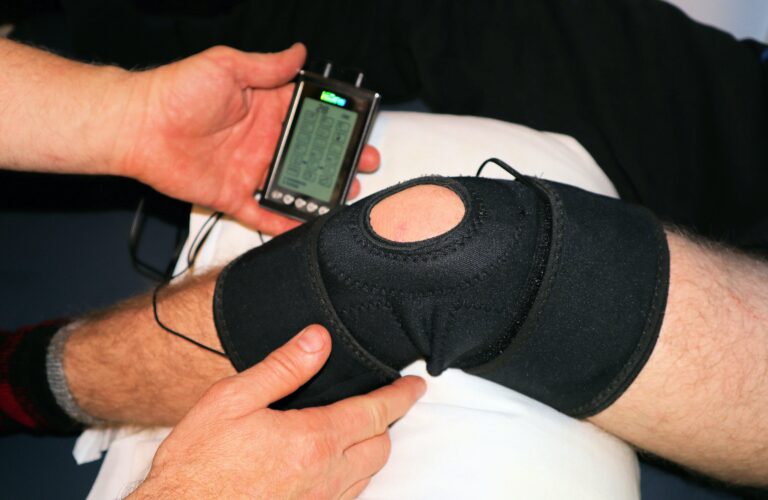You missed the step, tripped over a toy, fell off the ladder…Whatever the cause, you’re suddenly laid up with something in a cast, and you’re ready to climb the walls.
Hang tight, Spiderman.
We’ve got ideas to help you make it through this so you can get back to being your friendly neighborhood superhero.
First of all, it’s important to understand why you need to stay at a rehab facility in the first place.
For hints specific to summer issues, read on.
Frontida Senior Living Communities, including our Kimberly Assisted Living Facility, provide you with posts like this one to help you live your best life.
“To Home or Not to Home?” That Is the Question…
You may want nothing more than your own bed, but unfortunately a lot of factors play into whether you can go there right away. The doctor will weigh several concerns.
- How bad is your injury? Can you move? Can you be moved? Is infection a concern?
- How often do you need therapy? How many different kinds of theraphy do you need?
- Why did you get injured in the first place? Were you dizzy from medicine? Are you struggling with your balance? Is your eyesight bothering you?
- What’s the layout of your home? Do you have ten steps to get in the front door? Steps to get to the bath? Dogs and cats and toddlers running around to trip you up again? Can you get rest?
- If you’re in assisted living, is the building handicap accessible? Do wheelchairs fit comfortably around corners, especially in an emergency?
- Who’s available to help care for you? How often are they there? Are they strong enough? Need special training? Are you comfortable with their taking care of your personal needs?
- Are you willing to do your part, pushing yourself through exercises? Are you going to push too hard, doing things you aren’t ready to do and injuring yourself more?
- And the big one: What will insurance pay for? Can you afford at-home therapy and medical staffing?
Once you weigh all these answers with the doctor, you may find the rehab center is really the best place to help you get back to spinning those webs…or at least playing with the grandkids.
So how do you make the best of it?
“This is Howie Do It”—Bring Your Sense of Humor
Laughter really IS the best medicine. So channel your favorite comedian and search for the hilarious.
- Make friends with the workers. They are people, too, and work is much more fun with laughs. Ask about their lives. Tell them about yours.
- Not everything will be comfortable. But find a way to make a game of it or a challenge—that “spoonful of sugar” with the medicine thing.
- Smile at the other residents. Even if they can’t respond, it will make you feel better. And who knows—it might brighten their day. (Yes, smiles are contagious.)
- Make your room the one staff can’t wait to come to.
Remember, God gave you the face, but YOU make the expression.
Professor X Doesn’t Work at Your Rehab—The Staff Can’t Read Your Mind
- If you’re in pain, let them know. Yes, those 0-10 pain level questions can be hard to pinpoint, but think in terms of how much the ache stops you from thinking of other things.
- If you’re thirsty, hungry, need the bathroom, let them know.
- At the same time, you probably aren’t their only patient, so you might need some patience of your own.
- Have a family member hang a sign over your bed with information about you that may have nothing to do with your injury but would help the staff understand you better, e.g. wears hearing aids, glasses, or contacts, likes to read lips, gets dry mouth, loves chocolate (*wink*).
- Ask for a basket to put glasses and hearing aids in so they’re close by…or ask if you can bring a basket from home. It’s a lot easier to communicate with staff if you can reach what you need to see and hear them—because you can’t read minds either.
“You Just Call Out My Name” because Superheroes Always Need a Sidekick
People want to help. But sometimes they don’t know how.
Think of the times you heard a friend went to the hospital and you wanted to do something—but you stood in the grocery store for an hour trying to choose between flowers and a gift basket, wondering if either was the right thing.
Make it easy on your friends. If they ask how they can help, tell them.
- If you really love something that isn’t offered in the rehab’s cafeteria, ask someone to bring it for a special treat. (Assuming it’s okay dietarily.)
- Think what would make your room feel less like a hospital and more homey and have someone bring those things from home. Not the whole house, of course, if this isn’t going to be a permanent stay. But maybe a pillow, a favorite blanket, a cd player, or a few pictures.
- Nothing makes you feel cheery like a fresh coat of toenail polish. (If you’re a woman, that is. Guys, this one might not be for you.) Ask a friend to give you a quick mani/pedi. Or do your hair. And guys and gals alike love a neck massage.
- You know all those things you dreamed of doing if you didn’t have to do all the things on your to-do list? Now’s the time.
- Ask for books you’ve wanted to read, crossword puzzles, sudoku.
- See if they can bring in your computer so you can catch up on your Netflix bingeing. Or ask them for the TV guide so you can know what’s on the tele.
- Have them bring the chess board or Mastermind so you can challenge everyone who walks in your room.
Of course, let them know flowers and gift baskets are great, too.
You’re Stuck in Bed, But Your Thoughts Don’t Have to Take You for a Ride
Yes, we know, sometimes calming your mind is easier said than done.
Maybe you’ve always been a go-getter. You live by your schedule. What now?
- Pull out that planner and organize your other activities (book reading, game tournaments) around therapy and nurse visits. Some plans may have to be flexible, but you’ll have an idea of what’s coming.
- Ask therapists to share what milestones they’re looking for so you can enjoy the process of reaching them.
- Surprise visits are great, but ask friends to also schedule visits so you have them to look forward to.
Maybe you’re frustrated with your lack of progress. Frustrated with landing there in the first place.
- Give yourself grace. Accidents happen, and they take time to heal.
- Talk with the therapists to see if your expectations are reasonable.
Maybe sitting still with physical pain has dredged up raw memories…. You realize you weren’t there for someone when they were hurting. Or someone wasn’t there for you.
Processing through that ache is a good thing, but, remember, you can’t change the past.
- Ask forgiveness for what you can
- Forgive where you can
- Figure out how you can learn from it
Then, if you’re still struggling, talk to a friend, pastor, or counselor to see if you’re seeing the situation accurately. They may be able to help you find closure.
Finally, You’re on Your Way
You’ve worked hard, followed therapists’ directions, done your best to rest, and, now, you’ve healed enough to leave rehab. Yay! Your own bed’s calling, whether in your own house, with a family member, or in assisted living.
But while you’re ready to go, you might need extra support like a walker, a wheelchair, or even a bath bench. Unfortunately, insurance doesn’t always cover those.
Don’t worry. You won’t be up a creek without a paddle.
- Google “Medical Equipment Loan Closet.” It’s like a library for medical supplies.
Chances are, there’s one near you where you can borrow what you need for free for as long as you need it. (Here’s a link for medical supplies near Kenosha County.)
No one wants to get injured, but when it happens, make the best of it. After all, spider bites hurt—but look what Peter Parker did with it.
You’ve been living at home or with family and wonder if an assisted living facility would be a wiser place now? Come check out Frontida senior living.
Check out these other helpful posts on keeping seniors physically healthy.
Thank you to Terry Shultz on Unsplash for the featured image
Elizabeth Daghfal is a writer, teacher, speaker, and community volunteer. When she isn't teaching or writing-- Who are we kidding? Her husband and five kids say she's ALWAYS teaching and writing. She has a passion to help people who are struggling and is happy to say her shoulders are drip-dry. Born and raised in the South, she now lives in Wisconsin and loves it--except for the fifteen months of winter. Read more about her at elizabethdaghfal.com.

